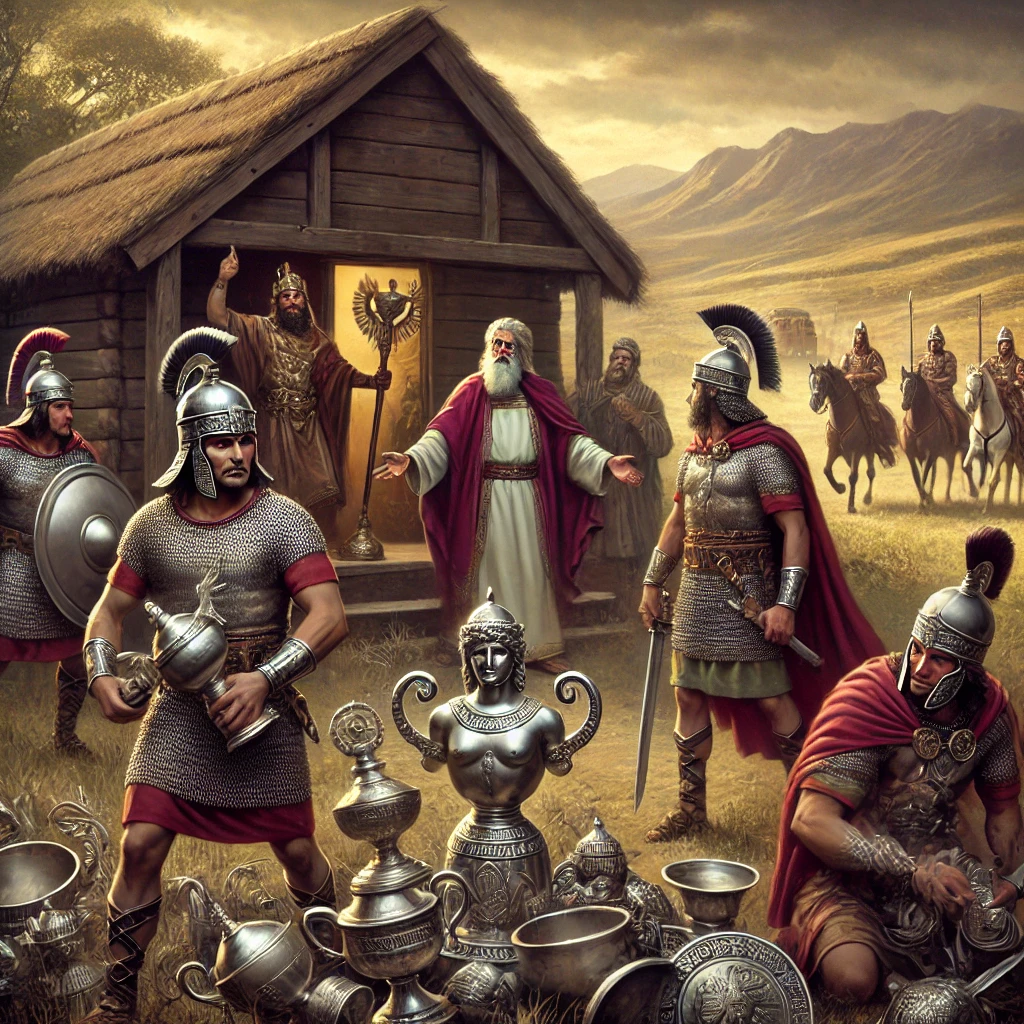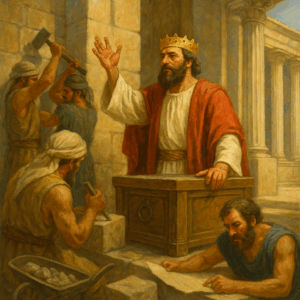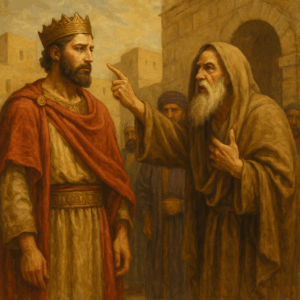Judges Chapter 18 continues the narrative of spiritual confusion and moral decline in Israel, focusing on the tribe of Dan and their quest for a new territory. This chapter recounts how the Danites steal Micah’s idols and priest, leading to the establishment of their own idolatrous worship. The events of this chapter underscore the disorder and lack of spiritual integrity that characterized the time of the Judges.
The Danites seek a new home.
The chapter opens with the tribe of Dan, one of the tribes of Israel, searching for a place to settle because they had not yet secured their inheritance among the tribes of Israel. In their quest, the Danites send five spies from Zorah and Eshtaol to scout the land. They come to the hill country of Ephraim, where they find the house of Micah, who has a private shrine with an ephod, household gods, and a carved image.
The encounter with the Levite priest.
Upon encountering the Levite serving as a priest in Micah’s house, the Danite spies inquire if their journey will be successful. The Levite responds favorably, saying their journey is under the Lord’s approval. Encouraged by this, the spies continue their reconnaissance and come upon the quiet and unsuspecting people of Laish. They observe that the land is fertile and prosperous but that the people there are isolated and unprepared for conflict.
The theft of Micah’s idols.
The spies return to their tribe with news of the favorable land, prompting 600 armed Danites to set out to capture it. On their way, they revisit Micah’s house. The Danite warriors seize Micah’s carved image, ephod, household gods, and even convince the Levite priest to come with them, offering him the opportunity to be a priest for an entire tribe rather than just one household. The Levite agrees and joins them, taking the stolen idols with him.
Micah’s despair.
Realizing his idols and priest have been taken, Micah gathers his neighbors and pursues the Danites. When he confronts them, they threaten him, asking why he would risk his life by challenging them. Micah, seeing their superior numbers and strength, retreats in despair, lamenting the loss of his shrine and religious items. This event highlights the moral and spiritual confusion of the time, where even those who sought to worship the Lord were ensnared in idolatry and corruption.
The Danite conquest and idolatry.
The Danites proceed to Laish, attack the unsuspecting people, and burn the city. They rebuild it and rename it Dan, after their ancestor. They establish the stolen idols in their new territory and continue the idolatrous practices. Jonathan, the Levite priest, and his descendants serve as priests for the tribe of Dan until the time of the captivity of the land, demonstrating the long-lasting impact of their actions.
Theological reflections.
Judges Chapter 18 illustrates the consequences of spiritual compromise and the dangers of idolatry. The narrative reveals how far the Israelites had strayed from God’s covenant, engaging in practices that were forbidden and contrary to true worship. It is a reminder that without strong spiritual foundations and adherence to God’s law, moral and spiritual decay is inevitable.
The impact of Judges chapter 18.
This chapter provides a sobering view of the period of the Judges, a time marked by moral ambiguity, spiritual confusion, and the abandonment of covenantal worship. The story of the Danites’ migration, theft, and idolatry serves as a cautionary tale about the dangers of syncretism and the failure to remain faithful to God’s commands.






